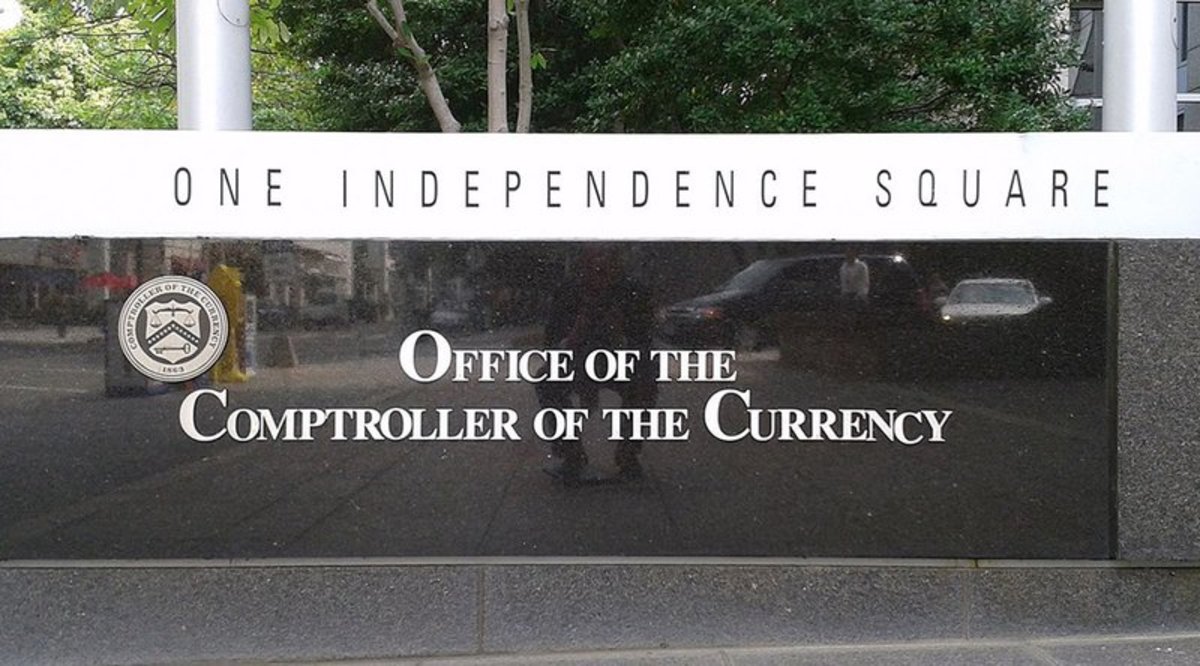
Comptroller of the Currency Thomas J. Curry, who heads an independent department in charge of supervising all U.S. national banks, stated in a speech April 7 at the American Banker Retail Banking Conference that “it’s important that regulators are open to the changes that are underway in both technology and business practices,” according to prepared remarks shared with Bitcoin Magazine.
The comptroller signalled a shift in attitudes toward fintech regulations, an umbrella term used to describe companies or services that use a combination of finance and technology, with Bitcoin being the most prominent example.
Announcing a number of new initiatives, such as “innovator fairs” that aim to bring banks and nonbank innovators together with OCC experts, and the sponsorship of a forum on responsible innovation to be held in Washington on June 23, Curry made it clear that “[T]he Office of the Comptroller of the Currency [OCC] want[s] to support efforts by federal banks to innovate.” He added, “But we also want to be sure that they do so in a responsible way that doesn’t threaten the safety of the system or the financial well-being of bank customers.”
In his more striking remarks the comptroller stated:
“[I]t’s not unreasonable to characterize the change underway in the financial marketplace as revolutionary. But purists might point out that real revolutions sweep away existing institutions. That hasn’t happened,” he said, but warned: “without change, banks could go the way of other businesses that failed to adapt to changing times.”
In potentially historic closing remarks Curry stated:
“If there is a revolution underway in financial services ... those of you in retail banking are on the frontlines. What I want you to know is that the OCC is ready to support you as you engage in the kind of responsible innovation that serves the needs of all financial consumers and makes our financial system stronger than ever.”
OCC is being hailed as the appropriate regulatory body to oversee an overhaul of outdated financial regulations, some as old as a century, to adapt to the changing needs of the 21st century and, in particular, to foster a welcoming environment for fintech innovation.
The remarks signal an overall change in attitude of both banks and regulators toward fintech just as London is declared the financial capital of the world for the second year running, beating New York by only 8 points out of 1,000 primarily because of London’s vibrant fintech sector.
British regulators have introduced fintech’s “most progressive, forward-looking regulatory regime” in the world, according to city minister and economic secretary to the U.K. Treasury Harriett Baldwin. She was commenting on the recent announcement of an unprecedented partnership between Barclays and Circle. U.S. regulators have noticed and they are now loudly asking for a shift in the way fintech companies are regulated.
The debate was opened by CFTC’s Commissioner J. Christopher Giancarlo, who hailed the benefits of blockchain and called for a light-touch regulatory approach similar to the strategy employed in the early days of the Internet. He made the remarks in a special address to the Depository Trust & Clearing Corporation 2016 Blockchain Symposium last week.
“[A] dramatic example of the potential benefits to regulators of blockchain technology is in the collapse of Lehman Brothers,” Giancarlo said.
Since then, the OCC issued a white paper calling for comments and suggestions on how to regulate “responsible innovation.” In opening remarks about the white paper, Curry stated:
“[R]apid and dramatic advances in financial technology are beginning to disrupt the way traditional banks do business. … At the Office of the Comptroller of the Currency (OCC), we are making certain that institutions with federal charters have a regulatory framework that is receptive to responsible innovation along with the supervision that supports it.”
Meanwhile, London races ahead. In a speech at Money 20/20 Europe, Hannah Nixon, managing director of U.K.’s Payment Systems Regulator, a first-of-its-kind independent regulator, highlighted Britain’s enthusiasm for financial innovation in stating:
“[W]e want to encourage technological innovation. Not for innovation’s sake, but to drive improvements for users, helping payment companies find new and ever more convenient ways for people to pay.
“In fact, we want the U.K. industry to become a center of innovation, to lead the world in the development of payment systems. And I believe the PSR can play a major part in that.
“We want people to look at U.K. payment systems and the PSR, and say, ‘We want to do it like that.’”
They have so far succeeded; consultancy firm Ernst & Young recently crowned London the "Fintech Capital of the World." Moreover, while British banks earned a reputation in the Bitcoin community for being notoriously against granting bank accounts to Bitcoin and other digital-currency-related businesses, that too seems to be changing. The shift in attitude may be, in part, due to PSR.
Echoing criticisms often expressed in the Bitcoin community, Nixon stated:
“The evidence we gathered showed that wider financial crime regulations may be causing people to be overcautious about doing business with a third party.”
Although she warns that “we would need to show our teeth from time to time,” she states that PSR “won’t be taking direct action” because PSR is aware a number of banks are “planning to start offering indirect access or expand their current services.” One such bank may be Barclays which, in an unprecedented move, partnered with Circle.
“Historically, obtaining U.K. banking has been challenging for U.K. Bitcoin companies; however recent events show that this situation is beginning to change,” Obi Nwosu, managing director at Coinfloor, a British-based Bitcoin exchange, stated in an email.
The winds of change are, therefore, once again in the air. As more than $20 billion has been invested globally in fintech, and investment in Bitcoin companies saw its second best quarter ever in the first quarter of 2016, it is perhaps time to repeat the remarks of George Osborn, the Chancellor of the Exchequer, who, in a speech in 2014 declared: “We stand at the dawn of a new era in banking.”
Photo MBisanz / Flickr(CC)










